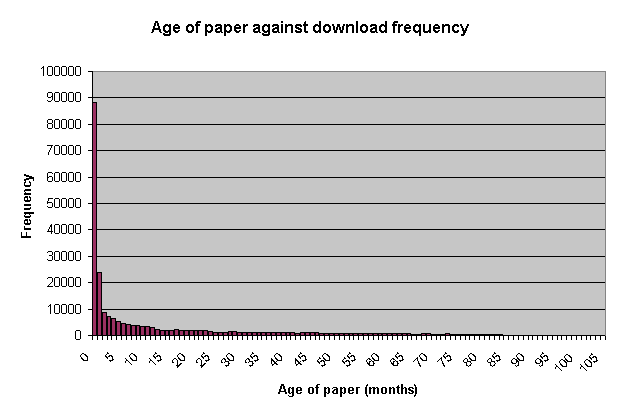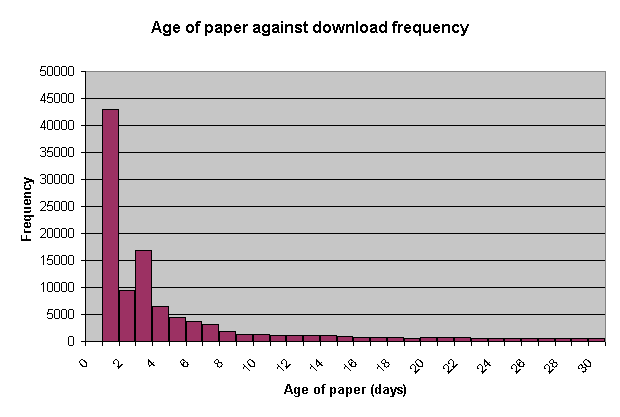[ Previous ] [ Home ] [ Next ]

Written by: Ian Hickman
Are newly deposited papers downloaded more?
Readers of arXiv can subscribe to an email alerting service which regularly tells them of new deposits into the archive. Due to this alertining email, and to users always wanting the most up-to-date informarion, it is very likely that new papers will be downloaded more than older papers. To test this hypothesis the age of every download of every paper needs to be calculated. The age of a download is defined as the time difference (in days or months) between the date the paper was deposited and the date of the download. Plotting this produces the following histograms.


The histograms prove our hypothesis correct.
Do the graphs show Exponential Decay?
The graphs show a decrease that looks like it might be exponential decay. If they are decaying exponentially then there would be a constant ratio. That is if we divide any time value tn, by the next one tn+1, the result will be a constant. The ratio is not constant, therefore it is not exponential decay.
What percentage of papers are downloaded within their first month in arXiv?
22897 papers were deposited between 24th July 1999 - 9th May 2000, this is one month
before we have logs for, until the day the logs end.
There are 19758 hits on unique papers from that set.
(19758/22897) × 100 = 86.3%
86.3% of papers are hit within the first month that they are on the archive, therefore
13.7% are not hit in the first month, as the majority of hits are for papers that are new, the question now
is: do the 13.7% get any hits at all? We cannot answer this question with the data that we have. To answer it
we would need web logs from all the mirrors from the day the archive was started.

[ Previous ] [ Top ] [ Home ] [ Next ]